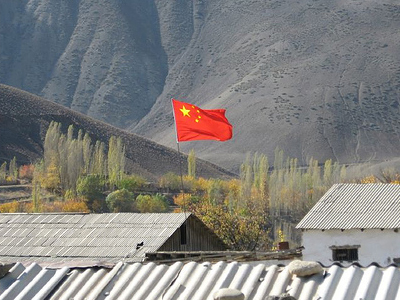China's Inadvertent Empire
Mini Teaser: Beijing has quietly strengthened its position economically and diplomatically in Central Asia, perhaps the most pivotal geographic zone on the planet. This development has powerful implications for America and the world.
The SCO may stem some of the great-power rivalry between Beijing and Moscow, and so far Russian leaders have reacted to China’s inadvertent empire with quiet acquiescence despite attempts at a “Eurasian union” or customs agreements entailing rather feeble tariff barriers against Chinese goods. Beijing and Chinese business leaders are not fazed by either effort. While severely lacking in institutional capacity, the SCO is at the moment emerging as the most inclusive and respected international organization in Central Asia, and it is quietly expanding its geopolitical influence. It recently welcomed Turkey as a “dialogue partner,” an illustration of the emerging cross-continental partnership between China and the other dynamic economies of Central Asia. The SCO’s real test will be how it addresses the future of Afghanistan, and here China’s role in Central Asia most affects U.S. interests.
Neither China nor the SCO is likely to take responsibility for Afghanistan should events not run smoothly once U.S. combat troops withdraw in 2014. Chinese investments, security concerns regarding Xinjiang and Beijing’s close relationship with Islamabad, however, will almost certainly shape the direction of the country in the coming decade. In the long term, China’s inadvertent empire in Central Asia will have geopolitical consequences for U.S. and Western influence in Mackinder’s most pivotal geographic zone on the planet. Should Washington become preoccupied with the Asia-Pacific in its China policy, it not only will be missing the more profound manifestation of China’s global posture but also could find it far more difficult to cultivate relationships with the countries of Central Asia. China may not be seeking an empire in the region, but it is the only power active in a comprehensive, long-term manner. If other outside powers do not also engage, China’s lock on Central Asia, to the exclusion of the United States, will be not only inadvertent but also inevitable.
Raffaello Pantucci is a visiting scholar at the Shanghai Academy of Social Sciences. Alexandros Petersen is the author of The World Island: Eurasian Geopolitics and the Fate of the West (Praeger, 2011). This article is the result of a year of research across Central Asia, including Afghanistan, and is part of a larger book project. Their joint work appears at www.chinaincentralasia.com.
Image: Robert Thomson
Image: Pullquote: Strategists in Beijing may not have a coherent strategy for Central Asia, but no other outside force is as comprehensively involved, as dynamic in its engagement or as committed to the long term.Essay Types: Essay
Pullquote: Strategists in Beijing may not have a coherent strategy for Central Asia, but no other outside force is as comprehensively involved, as dynamic in its engagement or as committed to the long term.Essay Types: Essay 